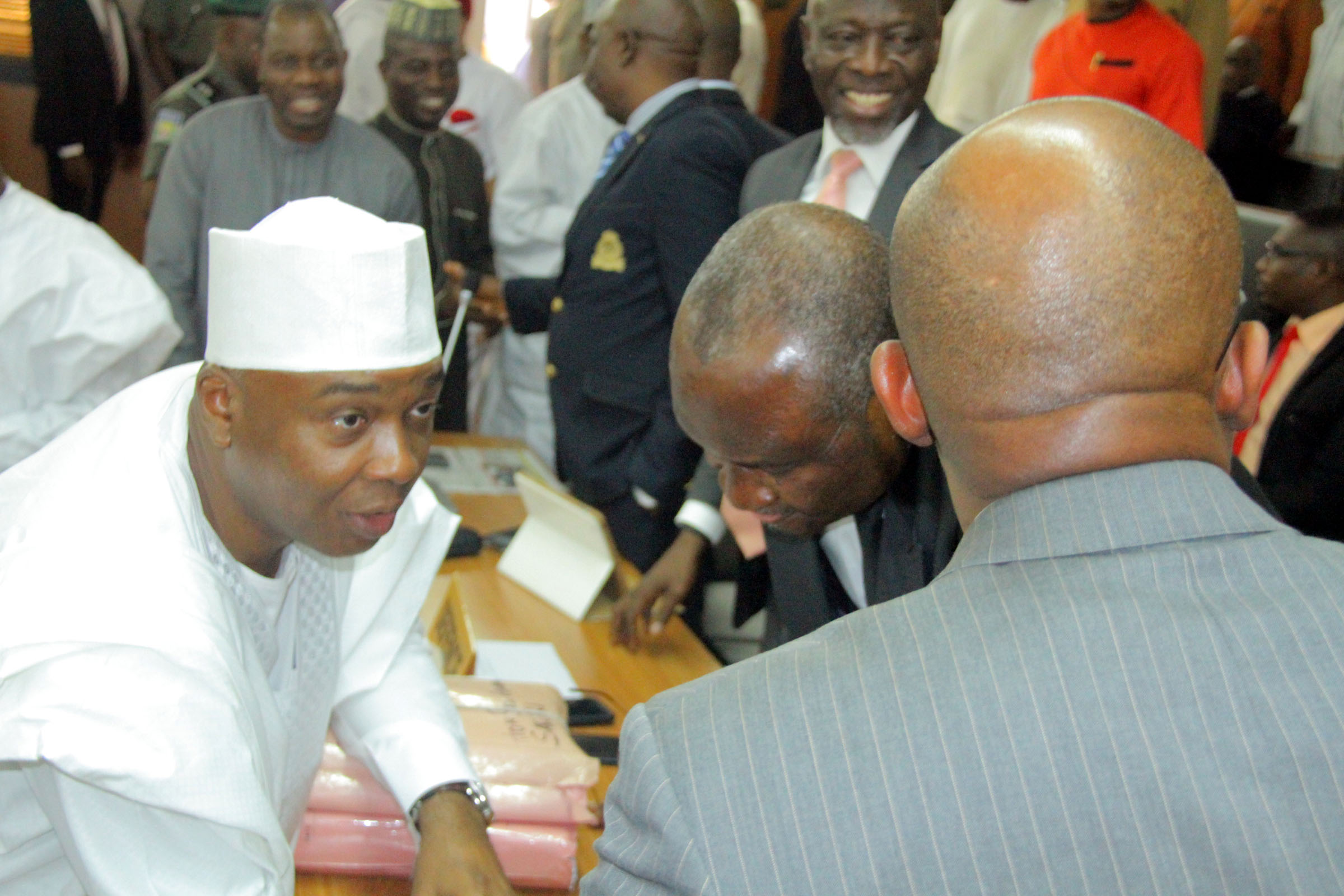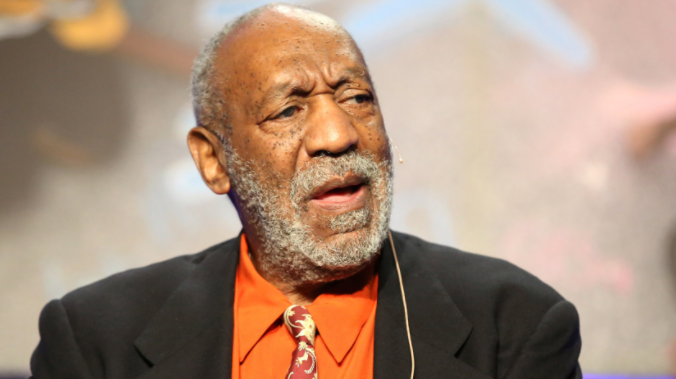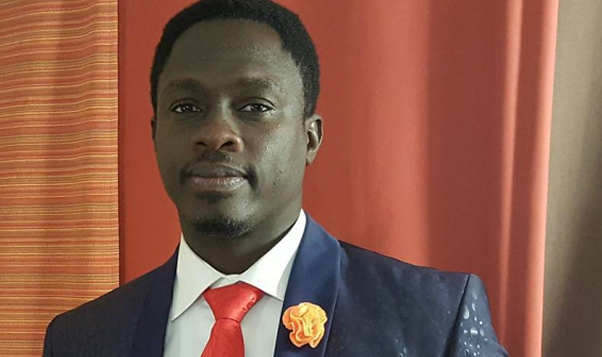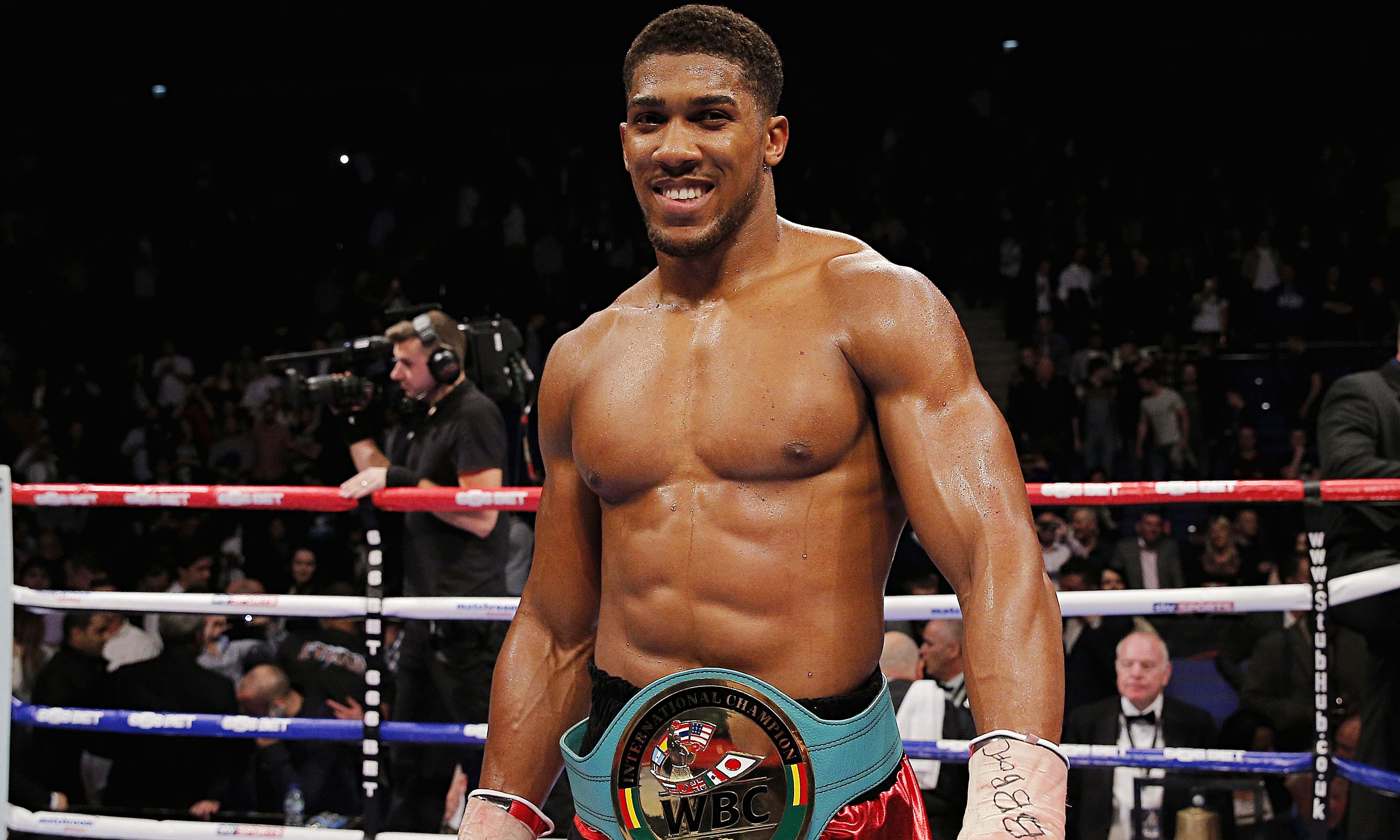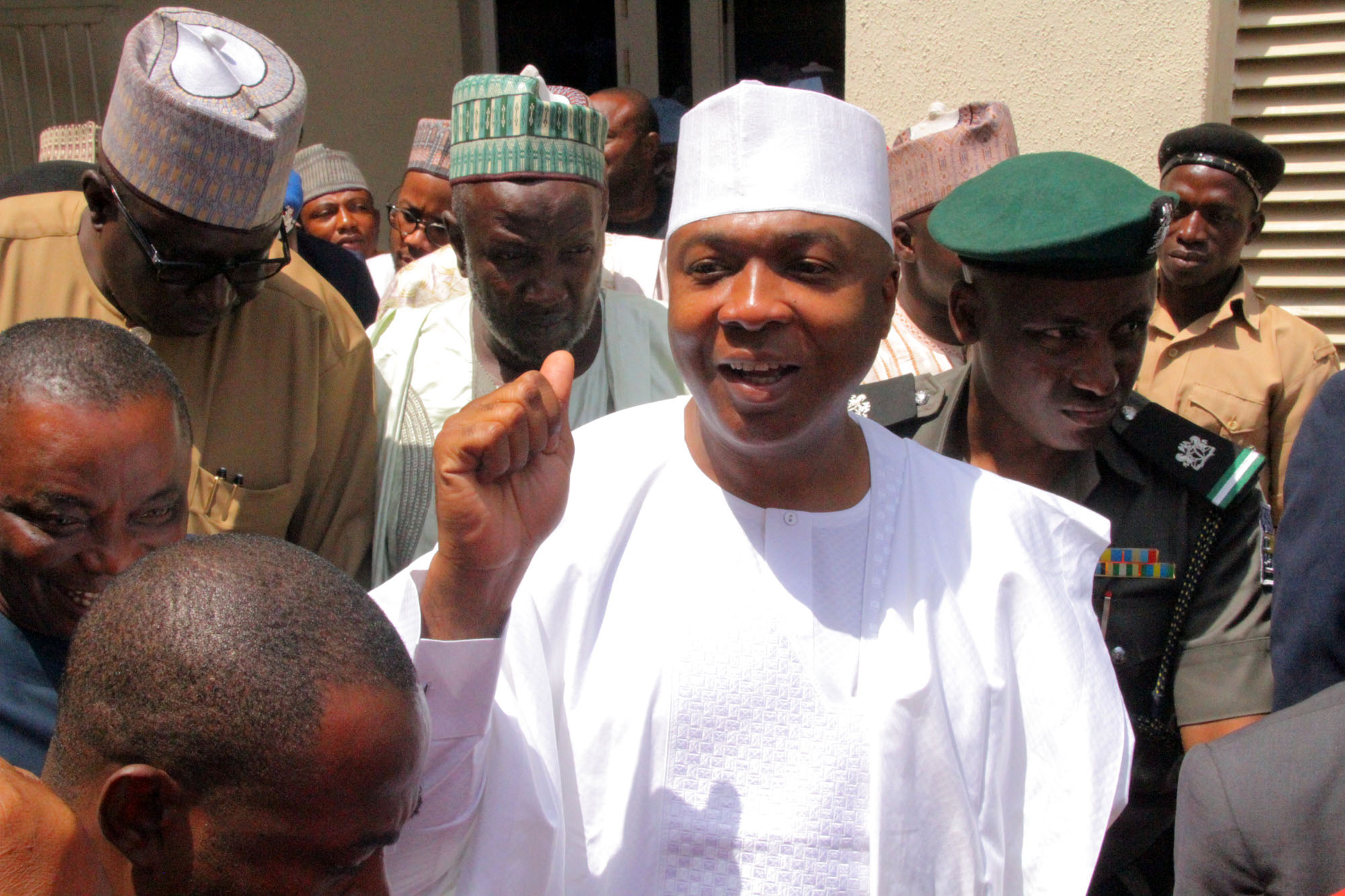The trial of Senate President Bukola Saraki at the Code of Conduct Tribunal (CCT) has come to an end.
Danladi Umar, chairman of the tribunal, discharged the senate president of all 18-count charge of false asset declaration brought against him by the federal government on Wednesday. This was after 90-weeks drama and intrigues.
The trial, which started in September 2015, was not smooth. There were intermittent legal hiccups effectuated by Saraki in a bid to halt it.
Here are the lawyers who defended the senate president in one of the high profilehigh-profileigeria’s judicial history.
Advertisement
JOSEPH DAODU
Daodu (SAN) was Saraki’s lead counsel before an altercation with the tribunal chairman forced him to withdraw his services. He teamed up with Mahmud Magagi, also a senior lawyer, in the early days of the trial.
Daodu was the counsel who pleaded with the tribunal to give Saraki a “second chance” after a bench warrant was issued against him. However, his approach to the trial was belligerent, and he often insisted that the tribunal had no jurisdiction to hear the charges against his client.
On November 5, he and his team of lawyers walked out on the CCT judge after he dismissed their application seeking to stop the trial pending the determination of an appeal at the supreme court.
Advertisement
Daodu could not secure any win of Saraki during his stint as lead counsel. The supreme court dismissed his appeal challenging the jurisdiction of the tribunal. And that was how far he could go in the case.
KANU AGABI
Agabi (SAN), a former attorney-general of the federation (AGF), brought humour, dexterity and tact to Saraki’s trial. He also brought one other thing to the trial – 106 lawyers – which he often said was the largest consortium of legal professionals handling a single case in Nigeria.
Agabi teamed up with three other senior lawyers – KK Eleja, Paul Usoro and Paul Erokoro – in the trial. When the courtroom is bursting with heated arguments and tension, Agabi would make a wisecrack to bring calm to the situation. He took the trial through a causal path despite the enormity of the charges. He also brought control and legal gravitas to the occasion.
Although the tribunal dismissed two of the applications he filed for the discharge of Saraki, he never resorted to verbal brawls to express his displeasure. The CCT judge and the lead prosecution counsel accorded him respect, perhaps because of his age and experience, but most importantly because his gentle disposition to cutting issues.
Advertisement
On Wednesday, he won his case for the senate president.
PAUL USORO
A senior advocate of Nigeria.(SAN), he was one of the SANs in the defence team of the senate president. At some point, he had also stood in for Agabi.
He had also filed a motion for stay of proceedings of the CCT before the court of appeal in Abuja only and had subsequently requested the tribunal adjourn pending the determination of the filed motion at appeal court.
Usoro cross-examined some of the witnesses in the trial.
Advertisement
PAUL EROKORO
A senior advocate of Nigeria, he was also among the top lawyers that were in Saraki’s defence team.
He once berated Rotimi Jacobs, a senior advocate of Nigeria, who was the federal government’s lawyer for insisting that only one counsel should be allowed to cross-examine a witness.
Advertisement
This followed the cross-examination of Michael Wetkas, the principal witness, who is an operative of the Economic and Financial Crimes Commission (EFCC), by two lawyers in the defence counsel.
On May 20, he had told the tribunal that Saraki, was worth “$22m , £12m, €2.6m and N4bn in cash, movable and landed assets” before he became governor of Kwara state in 2003.
Advertisement
The senate president had a strong legal team. At some point, he was represented by over 100 lawyers.
Advertisement
Add a comment
